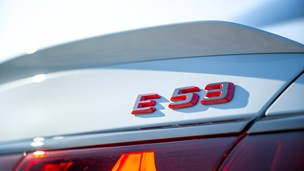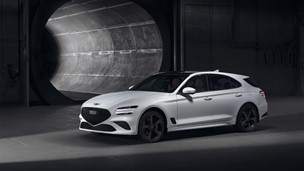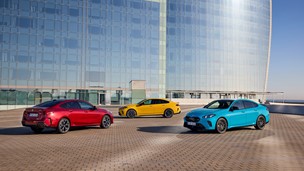Although it has deliberately been styled to look relatively conventional, the Model S is an extraordinary car. Designed from the start to run on electric power only, it has an electric motor driving the rear wheels, and in some cases another one driving the fronts.
At its fastest, in nearly 700bhp form with the well named “Insane” acceleration mode switched on, it is shatteringly rapid. However, it also has plenty of space for five adults, impressive handling for a large coupe, amazingly low running costs and the ability to download software patches when Tesla makes them available.
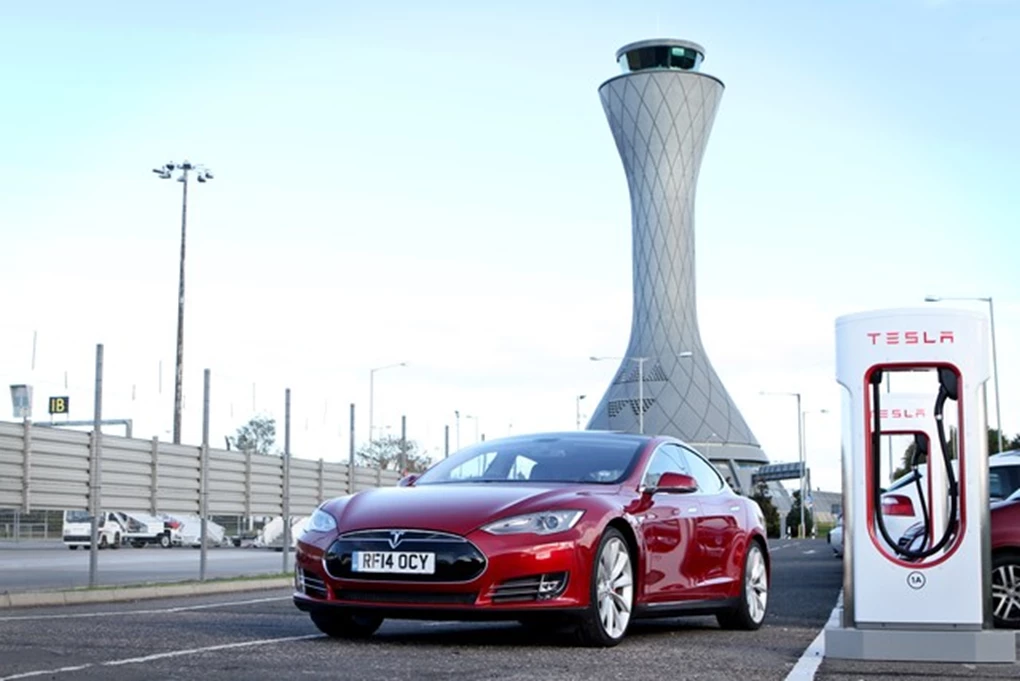
Performance
The lowest power output in the Model S range is 325bhp for the 70D. Most of the others produce under 400bhp too, but the P85D trumps them all with 682bhp. When Insane mode is selected, this means a 0-62mph sprint time of 3.1 seconds. This puts the car comfortably into the same territory as the fastest Ferraris while costing less than the cheapest from that manufacturer.
Even the less powerful Teslas feel impressively quick, especially from a standing start or under sudden acceleration from low speed. They are also extremely quiet. You can hear road and wind noise, but the only sound from the motor (or motors as applicable) is a distant whistle.
The motors act as generators when the car is slowing down, and are so effective at this that you hardly need to use the brakes at all in normal driving. If you don't like that effect you can tone it down after selecting the appropriate menu on the enormous central touchscreen.
Range anxiety - the bugbear of most electric cars - is reduced by the fact that the Model S can theoretically do between 275 and 330 miles (depending model) on a single charge. This assumes you're mostly driving in town. On motorways the range will be lower, but you should still be able to do between 150 and 200 miles. Also, if you use the Supercharger outlets (discussed in more detail below) the charging process is impressively rapid.
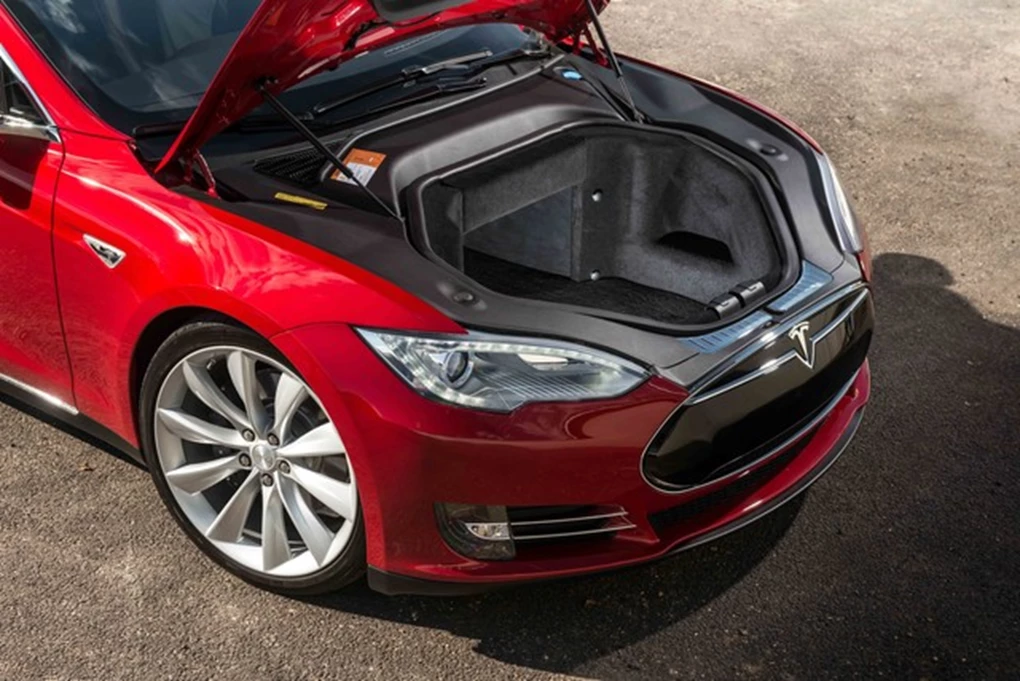
Ride and Handling
The power steering has three settings, the heaviest being quite firm but suitable for hard motoring.
With a kerb weight of just over 2,100kg, the Tesla can't be expected to handle like a sports car. But thanks partly to its good weight distribution and low centre of gravity, it responds well to spirited driving and feels both lighter and smaller than it actually is. Since the 691bhp version is one of the four-wheel drive cars in the range its substantial power output doesn't put too much strain on the tyres, which is just as well. Hard acceleration out of corners is easily coped with by the optional air suspension. The power steering has three settings, the heaviest being quite firm but suitable for hard motoring. The lightest makes the front end seem imprecise but is fine for motorway driving. Most models have very impressive ride quality. The optional 21-inch wheels - outstandingly expensive at £3,800 - and the low-profile tyres fitted to them overcome some of the suspension's ability to deal with sharp bumps, but we've experienced worse in some Audis, BMWs and Jaguars.
Interior and Equipment
Tesla Motors is named after the Serbian inventor Nikola Tesla (1856-1943), whose many accomplishments include pioneering work in the field of AC electricity supply.
With its large bodyshell and lack of transmission tunnel the Model S can easily accommodate five six-foot adults, as long as the three in the back don't mind rubbing shoulders. At extra cost you can specify a third row of seats, bringing the number of people you can carry up to seven. With all but the front two seats folded down the luggage capacity is an impressive 1,795 litres. There's also a separate luggage compartment under the bonnet with a volume of 150 litres in rear-wheel drive cars and rather less (though still a useful amount) in ones with the extra front motor. The front of the cabin is dominated by an enormous touchscreen with a large range of functions, including an internet browser and operation of the optional sunroof. Software updates applied to new cars are also available to owners of existing ones. Aside from the touchscreen, the interior design is deliberately minimalist, a feature which is quite pleasing to the eye but unfortunately also means that there are no front door pockets. The £2,100 optional Autopilot Convenience system is so comprehensive that the Model S could drive itself if the software had been developed to do it.
Cost
Fully recharging a flat battery is cheap if you do it at home, and the costs fall to zero if you only use public charging points or Tesla's own Supercharger system.
With the £5,000 Plug-In Vehicle Grant applied, prices for the Model S range from around £55,000 to just under £80,000, though there are enough optional extras to let you spend a six-figure sum if you're prepared to. Running costs are spectacularly low, partly because there is no Vehicle Excise Duty or London congestion charge to pay, and Benefit In Kind taxation is in the lowest bracket. Fully recharging a flat battery is cheap if you do it at home, and the costs fall to zero if you only use public charging points or Tesla's own Supercharger system. At the moment the latter is unique to the Model S because no other electric car can cope with such a rapid charge rate. Supercharger coverage in the UK is limited but growing. It’s sufficient in Europe as a whole for you to be able to travel from, say, Edinburgh to the south of France and back without paying anything for "fuel". Servicing costs are low because there are so few moving parts to service. Also, since brake wear is drastically limited by the regeneration system Tesla will give you a new set of pads for free if you need them. The only problem with servicing is that it can be done in very few places. If you don't live near any of these places, then you'll have to spend a lot of time (though not much money) getting the car there and back.
Our Verdict
The Model S has all the usual benefits of an electric car and, thanks to its unusual range, doesn't suffer too badly from the usual problem associated with them. On top of that, it's very practical, it rides comfortably, it handles well, it's very well equipped and in one form it's almost unbelievably fast. The big question is not about the things it can do - it's about why, in 2015, it's the only car on sale that can do them.


